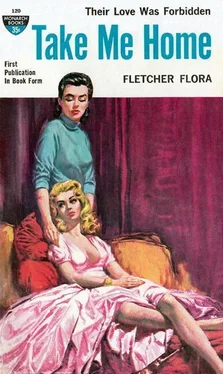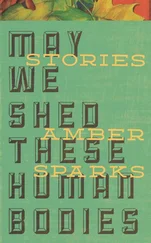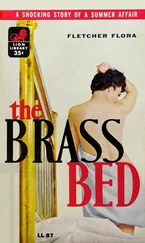Флетчер Флора - Take Me Home
Здесь есть возможность читать онлайн «Флетчер Флора - Take Me Home» весь текст электронной книги совершенно бесплатно (целиком полную версию без сокращений). В некоторых случаях можно слушать аудио, скачать через торрент в формате fb2 и присутствует краткое содержание. Город: New York, Год выпуска: 1959, Издательство: Monarch, Жанр: Эротические любовные романы, на английском языке. Описание произведения, (предисловие) а так же отзывы посетителей доступны на портале библиотеки ЛибКат.
- Название:Take Me Home
- Автор:
- Издательство:Monarch
- Жанр:
- Год:1959
- Город:New York
- ISBN:нет данных
- Рейтинг книги:4 / 5. Голосов: 1
-
Избранное:Добавить в избранное
- Отзывы:
-
Ваша оценка:
- 80
- 1
- 2
- 3
- 4
- 5
Take Me Home: краткое содержание, описание и аннотация
Предлагаем к чтению аннотацию, описание, краткое содержание или предисловие (зависит от того, что написал сам автор книги «Take Me Home»). Если вы не нашли необходимую информацию о книге — напишите в комментариях, мы постараемся отыскать её.
Take Me Home — читать онлайн бесплатно полную книгу (весь текст) целиком
Ниже представлен текст книги, разбитый по страницам. Система сохранения места последней прочитанной страницы, позволяет с удобством читать онлайн бесплатно книгу «Take Me Home», без необходимости каждый раз заново искать на чём Вы остановились. Поставьте закладку, и сможете в любой момент перейти на страницу, на которой закончили чтение.
Интервал:
Закладка:
In the desperate moments that followed, she cried out once, not loudly, but in a plaintive hopelessness that she knew no one would ever hear.
Chapter 10
Between nine-thirty and ten, while Ivy was enjoying the illusory warmth and security of too much alcohol, Henry was on the way home. He arrived just before ten, and he was already beginning to feel uncertain of a number of things he had accepted as true in Lila’s apartment. He was also beginning to feel guilty in proportion to his growing uncertainty, and he was nagged by the suspicion that Lila, in addition to being beautiful, was extremely clever as well. He had been altogether too ready to accept her diagnosis of Ivy, which was a measure of his own cowardice in trying to justify his own injustice, and now that he was away from her beauty and her assured voice and her willing flesh, he thought that he could detect in her remembered words and behavior a pattern of deception that he had not seen before.
He faced the rather humiliating conclusion that he had probably been seduced for a purpose other than pleasure, and this purpose was simply that of making Lila Galvin appear convincingly something that she was not. After all bisexuality was not particularly rare, and certainly had a far greater incidence than was generally known. Lila was, by the nature of her ambition, especially vulnerable to a kind of disgrace that could destroy her life as she wanted it to be, including probably a marriage for money and position, and her fear of Ivy, what she might say and do, was surely commensurate with her vulnerability. He wondered if this fear could actually become murderous. He had never fully believed Ivy’s story about the sedative, but he had considered it an effect of feverish imagination, not calculated deception, and he had not doubted until tonight, in Lila’s apartment, that Ivy had believed it herself. Now, in his own rooms, where the sense of Ivy’s presence was strong and Lila’s wasn’t, he again began to believe in Ivy’s innocence, if not her reliability.
Lila had said that Ivy was a psychopathic personality, a liar and cheat and egoist as well as deviate, but this was not so. It was Lila who lied, and possibly it was Lila who was the psychopathic personality. Henry’s knowledge of abnormalities was no greater and no broader than his experience of observation and reading, but he was certain that psychopathic personalities did not commit suicide or seriously try to. They destroyed others, never themselves. And Ivy’s suicide attempt had been genuine, there was no question about that, and she had been saved only by the thinnest and most ludicrous of chances, that she could in no way have predicted.
It was Lila who lied. She was very beautiful and very clever and maybe very dangerous. She had lied with her voice and with her body, and he had believed, for a while, both lies.
And where was Ivy? Well, she had gone away, because she had been told to go in anger that was now regretted. The rooms above the bookshop seemed desolate and deserted, and it occurred to Henry that emptiness, against all logic, existed in degrees. He noted the tidiness of the living room, and the tidiness somehow emphasized the absence of the person who had accomplished it. Walking into the bedroom, he saw the packed bag against the wall, and then, looking into the drawer of the chest, saw that the twenty dollars had been taken. The packed bag indicated that she intended to return for it, but this might no be for a long time, or might be never. In the meanwhile, she was gone, because he had sent her away, and where could she possibly be?
Was she, like the night he had found her, roaming the streets? The thought of her doing this was deeply disturbing, increasing his conviction of senseless cruelty and concomitant guilt, and he had a vision of her passing like a lost child through the intermittent areas of light and darkness along the cold streets. She had taken the twenty dollars, however. Having the money, it was unlikely that she would go without shelter and a bed the first night.
Perhaps she would go back to Lila. This thought was in his mind suddenly, and it was the most disturbing possibility of all. If she roamed the streets or stayed somewhere for the night in a cheap room, it was at least a sign of stubborn adherence to rebellion, a refusal to capitulate, but if she returned to Lila it would be a final admission of failure, the definitive submission. She had not been there while he was, that was certain, and he had left late enough so that she should easily have arrived, if she was coming at all. But perhaps it had merely taken her a long while to make a decision, or to be driven to it in desertion and desperation, in which case she might be there at this moment, and it was imperative, now that he had thought of it, to know if it were so or not.
Putting on his hat and overcoat, he went downstairs to the street and turned left toward the Greek’s as far as a public telephone booth on the corner. It was very cold in the booth, and the bulb which lighted it was growing dim. He found Lila’s number listed in the directory and dialed it. Her phone rang and rang in short bursts at the other end of the line, and he was about to give up and break the connection when her voice came on abruptly. “Hello,” she said. “This is Lila Galvin speaking.”
“Henry Harper,” Henry said.
There was a long pause before she spoke again, and in the pause a suggestion of wariness. Her voice, when she spoke, was so cool and impersonal that it seemed completely unrelated to the voice in which he had heard, a few hours ago, the soft solicitations and gutturals of passion.
“What do you want?” she said. “Why are you calling me at this hour?”
“Is Ivy there?”
“Ivy? Certainly not. I supposed that she was with you.”
“She’s gone. She was gone when I got home.”
“What made you think she came here?”
“I only thought she might have. It was the only place I could think of that she might go to.”
“Why did she leave? Was it because of something you did to her?”
He had been made sensitive to inference by his feeling of guilty responsibility, however irrational it might be, and he was, sitting cramped in the cold and dimly lighted booth, shaken of a sudden by a diffused and futile fury that was at once directed inwardly upon himself and outwardly upon both Ivy and Lila.
“Listen to me,” he said. “Whatever I have done to her is not one-tenth so bad as what you have done to her, or what she has done to herself. Anyhow, it will do no good to make accusations or call names. She’s gone, and where she may go finally and do to herself in the end is something I don’t like to think about. Neither do you, I’ll bet. You don’t like to think about what she may do to herself and, incidentally, to you.”
“Are you trying to threaten me?”
“If you’re threatened, it’s not by me.”
“I thought earlier tonight that you might have a little intelligence, but I see now that you’re a complete fool.”
“On the contrary, you thought earlier that I was a fool, and I was, but you’re beginning to think now that I may not be. Never mind that, however. There’s no use talking about it. I’ll look for Ivy, and if I can’t find her I may report to the police that she’s missing.”
“No! Wait a minute.”
He waited, listening to the humming wire, and he could feel in the little booth, as though it came through the wire on the sound he heard, the anxiety and calculation of the woman at the other end.
“Are you there?” she said.
“Yes.”
“You’re quite right about making accusations and calling names. There’s nothing to be gained by it. Where are you now? Are you at home?”
“No. I’m in a sidewalk telephone booth.”
Читать дальшеИнтервал:
Закладка:
Похожие книги на «Take Me Home»
Представляем Вашему вниманию похожие книги на «Take Me Home» списком для выбора. Мы отобрали схожую по названию и смыслу литературу в надежде предоставить читателям больше вариантов отыскать новые, интересные, ещё непрочитанные произведения.
Обсуждение, отзывы о книге «Take Me Home» и просто собственные мнения читателей. Оставьте ваши комментарии, напишите, что Вы думаете о произведении, его смысле или главных героях. Укажите что конкретно понравилось, а что нет, и почему Вы так считаете.












